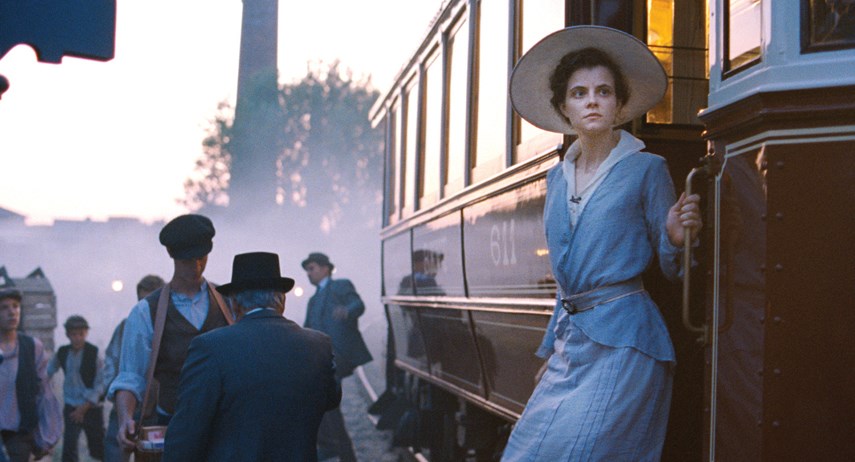Sunset. Directed by Laszlo Nemes. Starring Juli Jakab. Rating: 6 (out of 10)
In his Oscar-winning Holocaust drama Son Of Saul, director Laszlo Nemes took a dark time in history and added a horrifyingly intimate perspective. His new film, Sunset, despite hinting at a history lesson from the first frame, becomes increasingly disinterested with time and place as time ticks on.
That isn’t to say that Nemes and cinematographer Matyas Erdely haven’t created a period feast for the senses, a film steeped in the dust, heat and uncertainty of the time. It’s the early 1910s in the sprawling Austro-Hungarian empire, back when Budapest rivaled the great cities of Europe.
Irisz (Juli Jakab) applies for a position at the upscale Leiter Milliners. It’s a company that bears her last name. The sudden arrival of a Leiter in Budapest doesn’t sit well with the company’s present owner, Oszkar Brill (Vlad Ivanov), who tries more than once to send her away.
Orphaned when she was two, and apprenticed since she was 12 in Trieste, Irisz is drawn to the millinery shop. “This building still stands. It’s all that’s left of them.” Her quest for identity is compounded by the new knowledge that she has a brother.
There are elaborately choreographed long shots as Irisz wanders the city. The camera and the viewer follow frequently from behind. It’s a technique that allows for an immersive experience for the viewer but it becomes ponderous as it is overused, contributing to the film’s lengthy two-hour-plus running time.
A slaughtered count, a disfigured beauty: things get curiouser and curiouser, and Irisz is not unlike Alice going down the rabbit hole as she searches for her brother. A tram takes her to the undesirable part of town, to a building where women aren’t permitted inside and where class rebellion is brewing. Back at Leiter’s, plans are underway for the company’s 30th anniversary celebrations, masking a sinister tradition: the pretty milliners are being groomed for the arrival of the king and queen, who will choose a selection of hats along with one “lucky” young woman.
This is the only thing made explicitly plain in the film: the near-constant peril faced by young women, regardless of their station in life.
Nemes clearly means to challenge his viewers to think for themselves, and therefore leaves many questions open-ended. But while it’s not necessary to have a definitive answer to the fate of Irisz’s parents, for example, or to what led her to leave the relative comfort and ease of Trieste (or, for that matter, why the king and his court of fetishists go barefoot), we do need some sort of motivation for her bull-headed journey from one dangerous situation to the next.
Jakab also starred in Son of Saul and is the ideal choice to play Irisz, who spends a great deal of the film in an almost dreamlike state as an impassive observer to the horrors taking place around her, a Mia Farrow in Rosemary’s Baby. Jakab’s performance remains strong even as it becomes unclear what her character’s motivation is and where her allegiances lie.
Visually there is plenty to admire in Nemes’ sophomore effort, from those exquisite hats to the hordes of extras who populate the film and add to the sense of a city, an empire, a continent on the brink of something. But ultimately the film fails to anchor all that chaos in its historical context, leaving its characters adrift.



